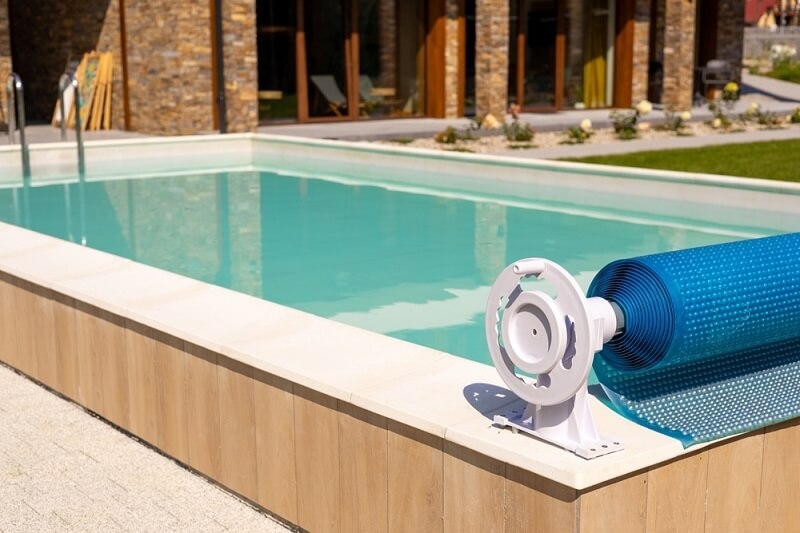Cheapest Homeowners Insurance Companies for Your Budget
Cheapest Homeowners Insurance Companies for Your Budget


Image Source: Quora
Homeowners insurance is a critical component of financial protection for property owners. It covers damages to your home and belongings caused by various perils, including theft, fire, and natural disasters. Additionally, it provides liability coverage in case someone is injured on your property. Finding affordable homeowners insurance without compromising coverage can be challenging, but some companies offer competitive rates and comprehensive policies. This blog explores some of the cheapest homeowners insurance companies, including Travelers, State Farm, and Nationwide. We will also discuss how much homeowners insurance costs, ways to save on your policy, factors that impact insurance costs, and what homeowners insurance does and doesnt cover.
Know the Cheapest Homeowners Insurance Companies
Finding the cheapest homeowners insurance requires a balance between affordability and adequate coverage. Here are three companies known for their competitive rates and robust policies:
Travelers
Travelers is renowned for offering affordable homeowners insurance with customizable coverage options. They provide a variety of discounts that can significantly reduce your premium.
For instance, you can save by bundling your homeowner's insurance with auto insurance, installing protective devices like smoke detectors and security systems, or having a claim-free history. Travelers also offer additional coverage options such as identity fraud protection and green home coverage, which can be added to your policy for enhanced s.
State Farm
State Farm is another top contender for cheap homeowners insurance. Known for its extensive network of agents and excellent customer service, State Farm offers competitive rates and numerous discounts.
Policyholders can save by bundling multiple policies, installing home security systems, and maintaining a claims-free record. State Farm also provides a range of coverage options, including replacement cost coverage for personal property, which ensures that you are reimbursed for the full cost of replacing your belongings, without depreciation.
Nationwide
Nationwide offers affordable homeowners insurance with a variety of coverage options and discounts. Their policies cover standard perils and offer additional endorsements for enhanced protection, such as water backup coverage and better roof replacement.
Nationwide provides discounts for bundling policies, claims-free history, and installing protective devices. Additionally, they offer a unique discount for newly purchased homes and for homes that have been recently renovated.
Cost of Homeowners Insurance

Image Source: All State
The cost of home insurance varies widely based on several factors, including the location of your home, the value of your home and belongings, the coverage limits you choose, and your deductible amount.
On average, homeowners insurance in the United States costs around $1,200 per year, but this can range from a few hundred dollars to several thousand dollars annually.
Saving on Homeowners Insurance
Saving on homeowners insurance can be achieved through several strategies. First, consider bundling your homeowner's insurance with other policies, such as auto or life insurance, to take advantage of multi-policy discounts. Increasing your deductible can also lower your premium, but ensure the amount is manageable in case of a claim. Installing protective devices like smoke detectors, security systems, and deadbolt locks can qualify you for discounts as these reduce the risk of damage or theft. Maintaining a claims-free history can lead to lower premiums, so try to avoid filing small claims.
Shopping around and comparing quotes from multiple insurers ensures you get the best rate for the coverage you need. Improving your credit score can also help, as insurers often use credit scores to assess risk; higher scores typically result in lower premiums. Making home improvements, such as upgrading your roof or plumbing, can reduce the risk of damage and potentially lower your premium. Lastly, regularly review and update your policy to ensure it accurately reflects your home and belongings, removing unnecessary coverage and adjusting limits as needed to keep your insurance costs down.
Factors That Influence Homeowner's Insurance Costs
Several factors influence the cost of homeowners insurance, and understanding these factors can help you make informed decisions when purchasing a policy.
Location
The location of your home is a significant factor in determining your insurance premium. Homes in areas prone to natural disasters, such as hurricanes, earthquakes, or wildfires, typically have higher premiums due to the increased risk of damage.
Home Value and Reconstruction Cost
The value of your home and the cost to rebuild it in the event of a total loss play a crucial role in determining your insurance costs. Higher-value homes or homes with expensive building materials will have higher premiums.
Coverage Limits
The amount of coverage you choose for your home and belongings will impact your premium. Higher coverage limits result in higher premiums.
Deductible Amount
The deductible is the amount you pay out of pocket before your insurance coverage kicks in. Choosing a higher deductible can lower your premium, but you'll pay more in the event of a claim.
Claims History
Insurers consider your claims history when calculating your premium. A history of frequent claims can lead to higher premiums.
Credit Score
Your credit score can also affect your homeowner's insurance premium. Insurers often use credit scores to assess risk, so a higher credit score may result in lower premiums.
Home Age and Condition
Older homes or homes in poor condition may have higher premiums due to the increased risk of damage.
Protective Devices
Installing protective devices such as smoke detectors, security alarms, and deadbolt locks can lower your premium by reducing the risk of theft or damage.
Coverage Options
Adding optional coverage, such as flood insurance or earthquake insurance, will increase your premium but provide additional protection against specific risks.
Discounts
Many insurers offer discounts for factors such as bundling multiple policies, having a claims-free history, or being a member of certain organizations. Taking advantage of these discounts can help lower your premium.
Coverage of Homeowners Insurance
Homeowner insurance typically covers the following:
Dwelling Coverage: Protects the structure of your home, including the roof, walls, and built-in appliances, against covered perils.
Personal Property Coverage: Covers your belongings, such as furniture, electronics, and clothing, against covered perils.
Liability Coverage: Provides financial protection if you are found liable for someone's injury or property damage.
Additional Living Expenses (ALE): Covers the cost of living elsewhere if your home is uninhabitable due to a covered loss.
Other Structures Coverage: Protects structures on your property that are not attached to your home, such as a detached garage or shed.
Things that Homeowners Insurance Doesn't Cover

Image Source: Bob Vila
Standard homeowners insurance policies typically do not cover:
Flood Damage: Flood insurance must be purchased separately through the National Flood Insurance Program (NFIP) or a private insurer.
Earthquake Damage: Earthquake insurance must be purchased separately in areas prone to seismic activity.
Wear and Tear: Damage caused by lack of maintenance or normal wear and tear is not covered.
High-Value Items: Expensive items such as jewelry, art, and collectibles may have limited coverage under a standard policy and may require additional endorsements.
Pest Infestations: Damage caused by pests like termites or rodents is typically not covered.
Mold: Mold damage is often excluded or limited unless it results from a covered peril.
Getting Cheap Homeowners Insurance
Securing affordable homeowners insurance without compromising coverage requires a strategic approach. Start by comparing quotes from multiple insurance providers to find the best rate for the coverage you need. Take advantage of discounts offered by insurers, such as those for bundling policies, installing protective devices like smoke detectors and security systems, and maintaining a claims-free history. Opting for a higher deductible can also lower your premium, but ensure you can afford the deductible amount in case of a claim.
Improving your home security can qualify you for additional discounts, as insurers often provide lower rates for homes with enhanced safety features. Maintaining a good credit score is another key factor, as many insurers use credit scores to determine premiums; paying bills on time and managing debts effectively can help improve your credit score. Regularly review and update your policy to reflect any changes in your home or belongings, removing unnecessary coverage and adjusting limits as needed.
Consider the impact of your home's size and age on your premium smaller or newer homes typically have lower premiums due to reduced risk and cost to rebuild. By following these steps and staying proactive about your homeowner's insurance, you can find a policy that offers the protection you need at an affordable price.
You may also like to read: Factors to Consider When Getting Best Homeowners Insurance
Conclusion
Finding affordable homeowners insurance is essential for protecting your home and belongings without breaking the bank. Companies like Travelers, State Farm, and Nationwide offer competitive rates and comprehensive coverage options. By understanding the factors that impact insurance costs and employing strategies to save on your premium, you can secure the protection you need at a price you can afford. Regularly reviewing and updating your policy ensures that you maintain adequate coverage while taking advantage of potential savings. Remember, the cheapest policy isn't always the best make sure it provides the coverage you need to safeguard your home and peace of mind.
This content was created by AI



